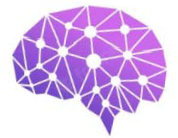
qEEG screening
Service code s9006
Short description
Stress occurs when the brain (and mind) cannot successfully adapt to changes in the environment which confront the individual with new challenges, demands, constraints or opportunities. In most cases stress occurs when new challenges are persistently resisted (mentally or emotionally).
Stress is an unavoidable consequence of modern life. Short-term acute stress has beneficial stimulating (increased focus and performance) and protective (immune system activation) effects. However chronic stress is always damaging: it can lead to burnout, which is emotional and physical exhaustion coupled with cognitive weariness (slow thinking). Excessive stress also leads to a number of stress-related dysfunctions as, for example, various cardiac and immune problems.
The brain is a central organ of stress effect and adaptation to stress, because it perceives and determines what is threatening, as well as executes behavioral and physiological responses to the stressor. Unfortunately, the pace of modern life causes the brain to be in a constant state of physiological arousal over perceived threats and, therefore, stress responses are frequently activated, leading to chronic stress states.
Therefore, qEEG screening can be helpful for objective assessment of neurophysiological stress. Studies demonstrated (1, 2) that qEEG detects mental stress with an accuracy of 94%, 85%, and 80% for different levels of stress.
Results
By performing this qEEG screening you will get the information on:
- whether your qEEG pattern is typical for a particular Stress Level and the risks associated with it.
Notes:
- The results of qEEG analysis are put in context of published scientific studies, the individual’s health history, complaints, symptoms and psychometric and other evaluations (if available).
- Present psychotropic medication use may affect the results.
To place a service order, use the following email:
References
- Al-shargie FM, Tang TB, Badruddin N, Kiguchi M. Mental Stress Quantification Using EEG Signals. International Conference for Innovation in Biomedical Engineering and Life Sciences, IFMBE Proceedings 56, 2016.
- Sharma R, Chopra K. EEG signal analysis and detection of stress using classification techniques, Journal of Information and Optimization Sciences 2020; 41(1): 229-238.